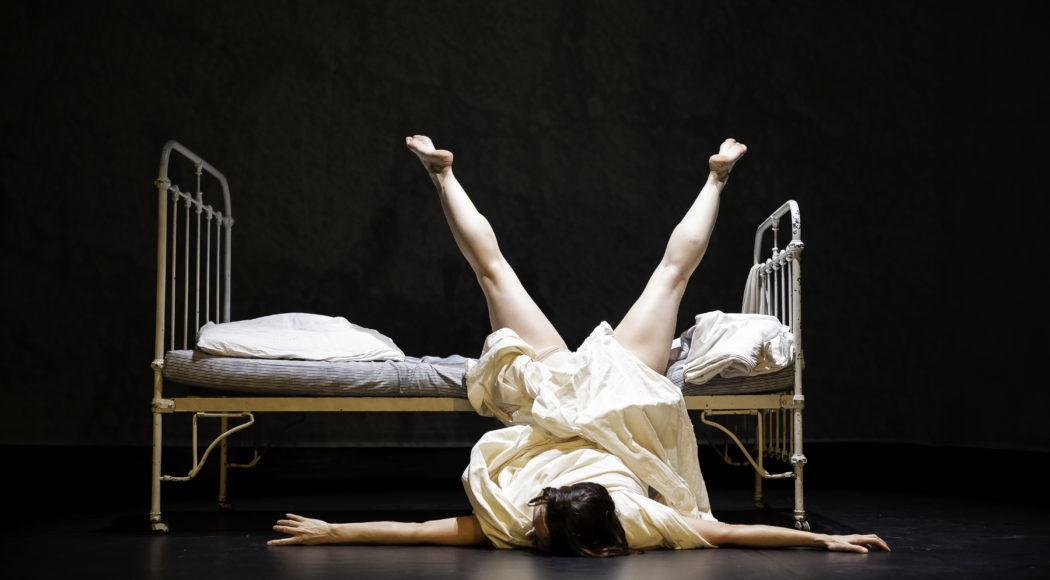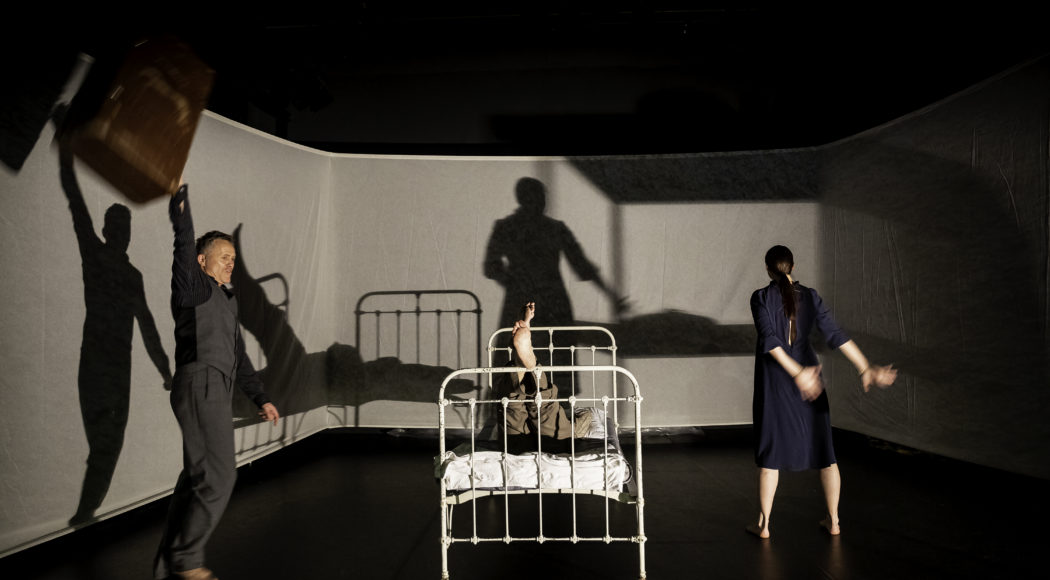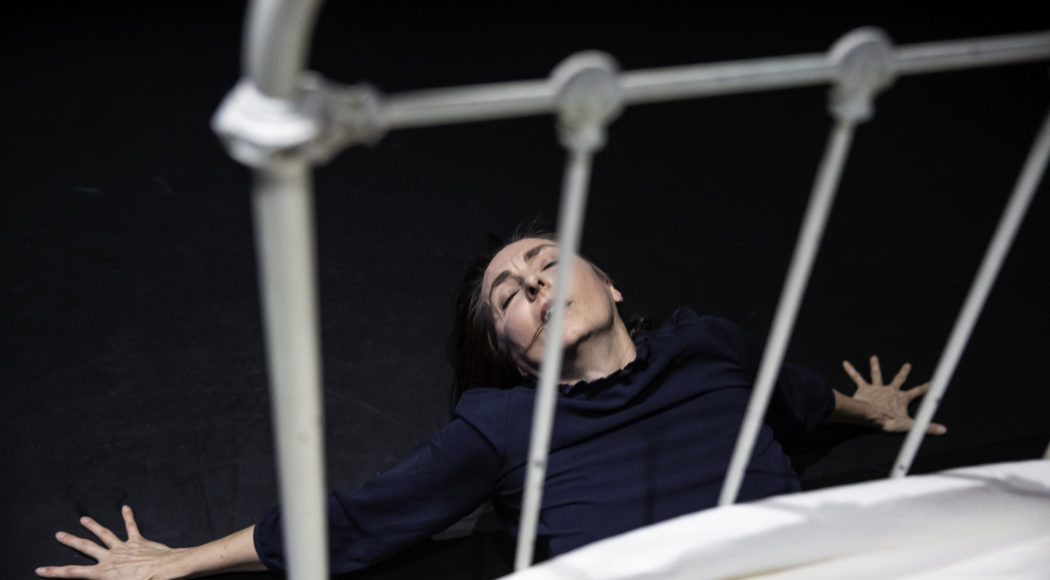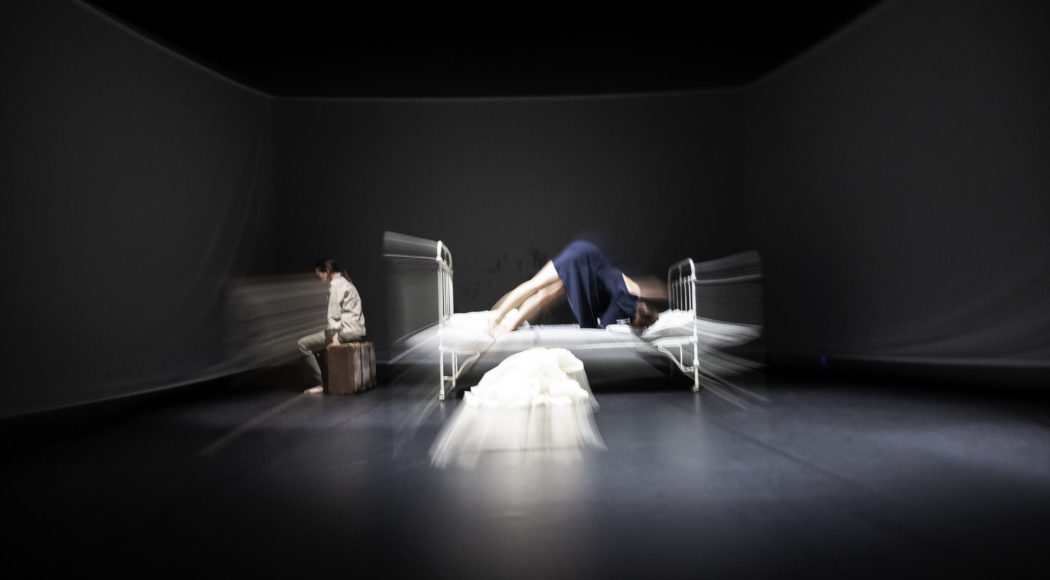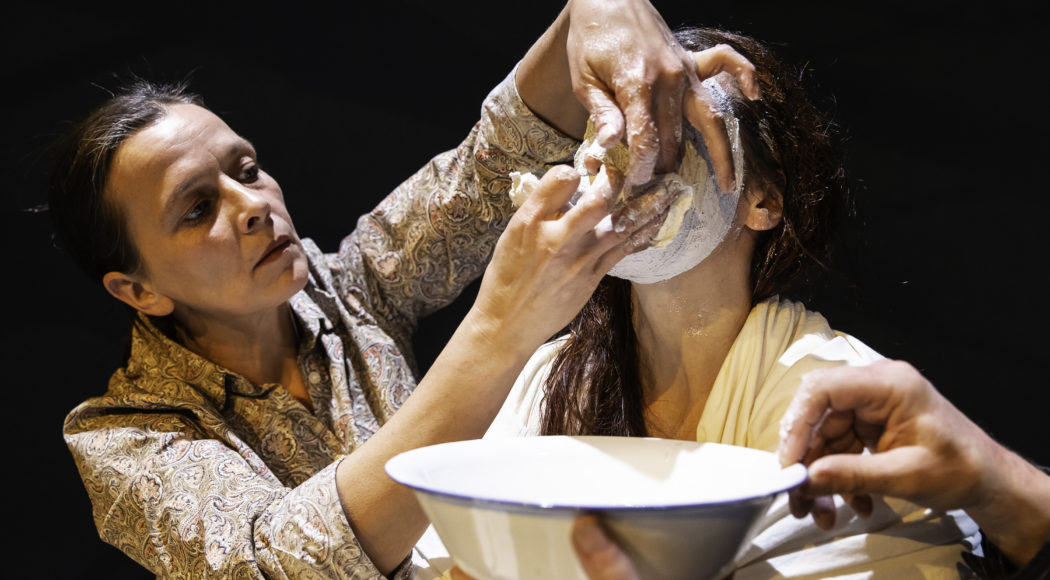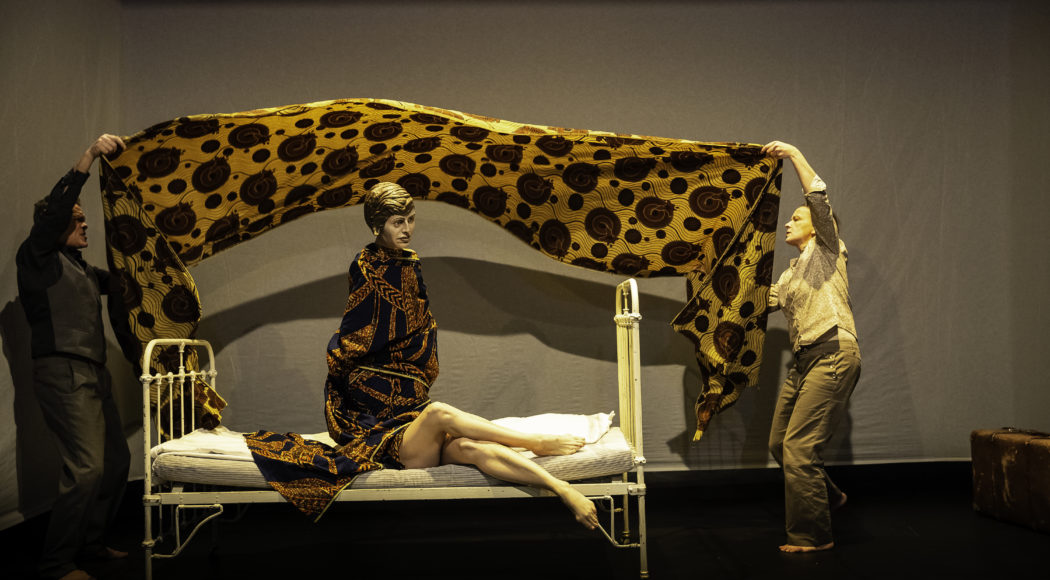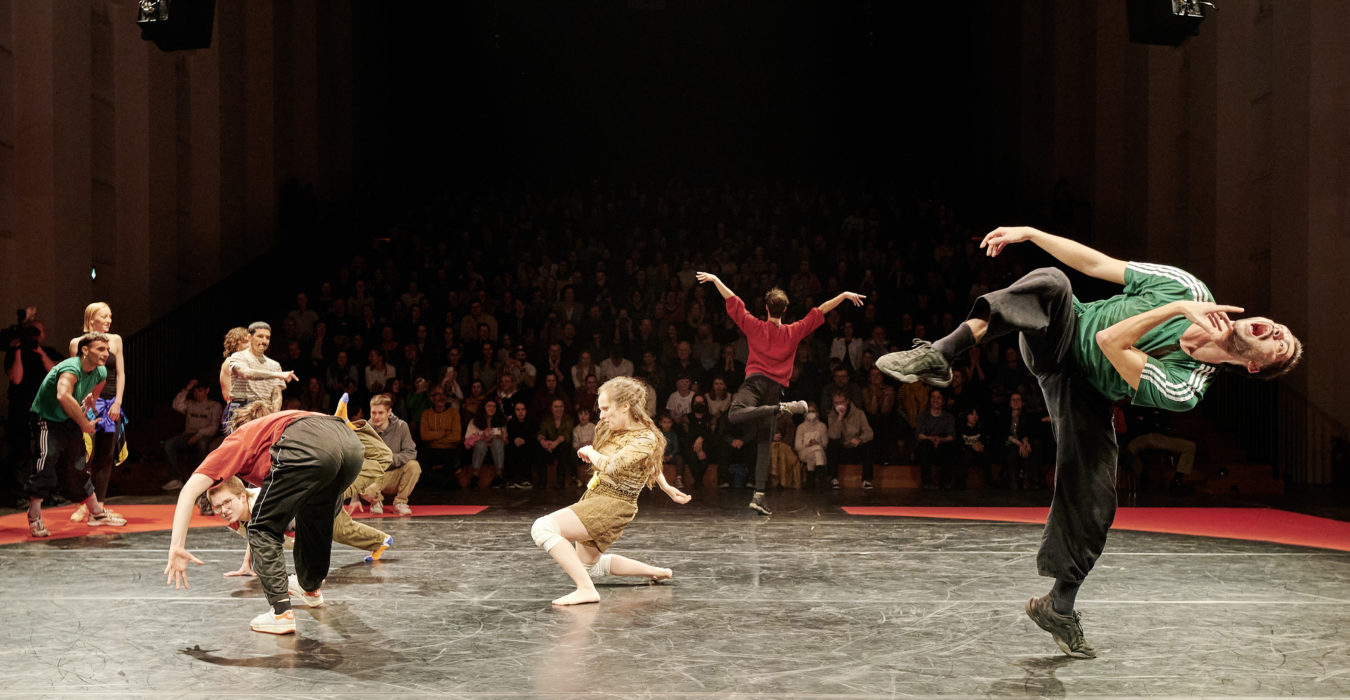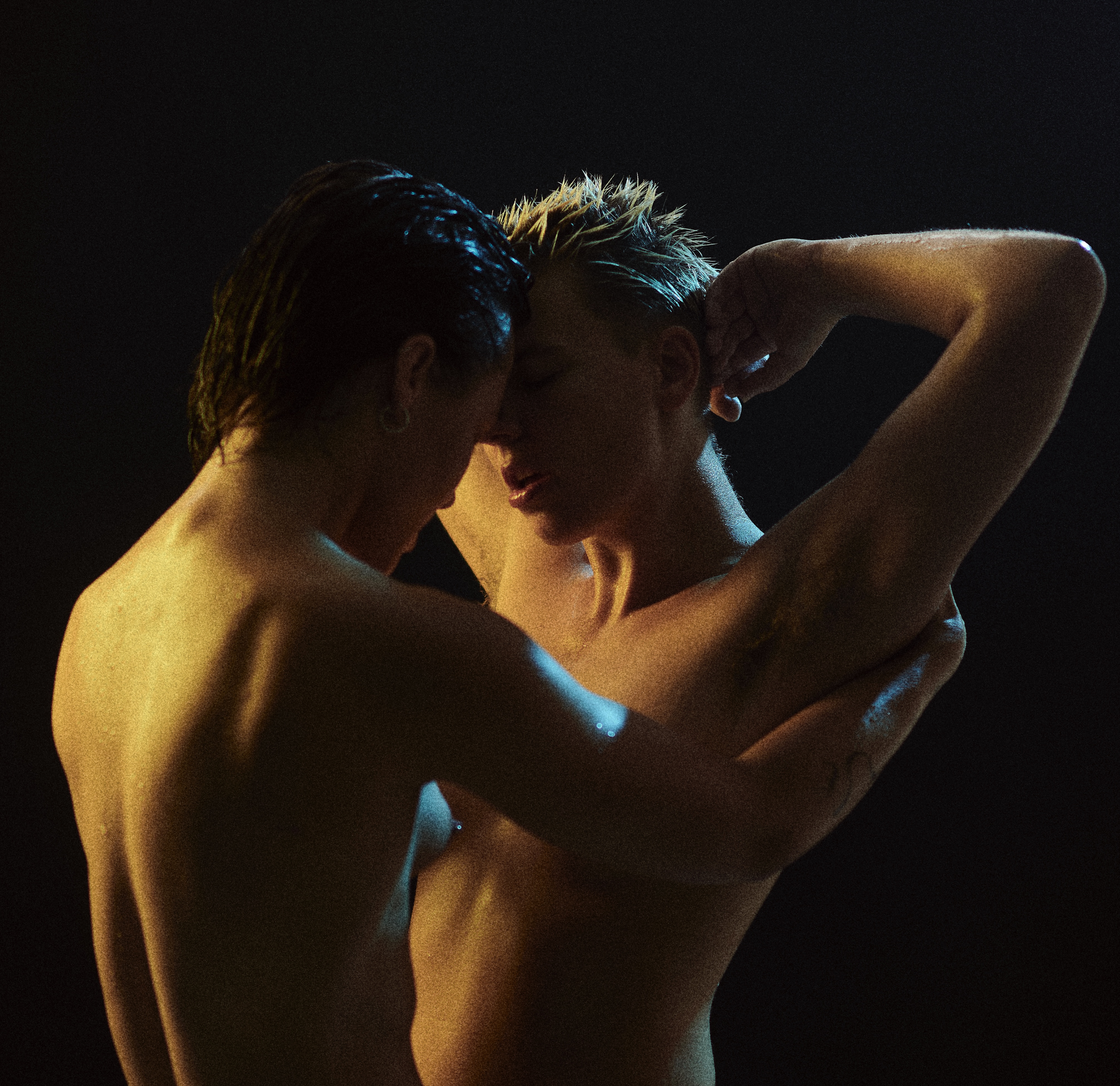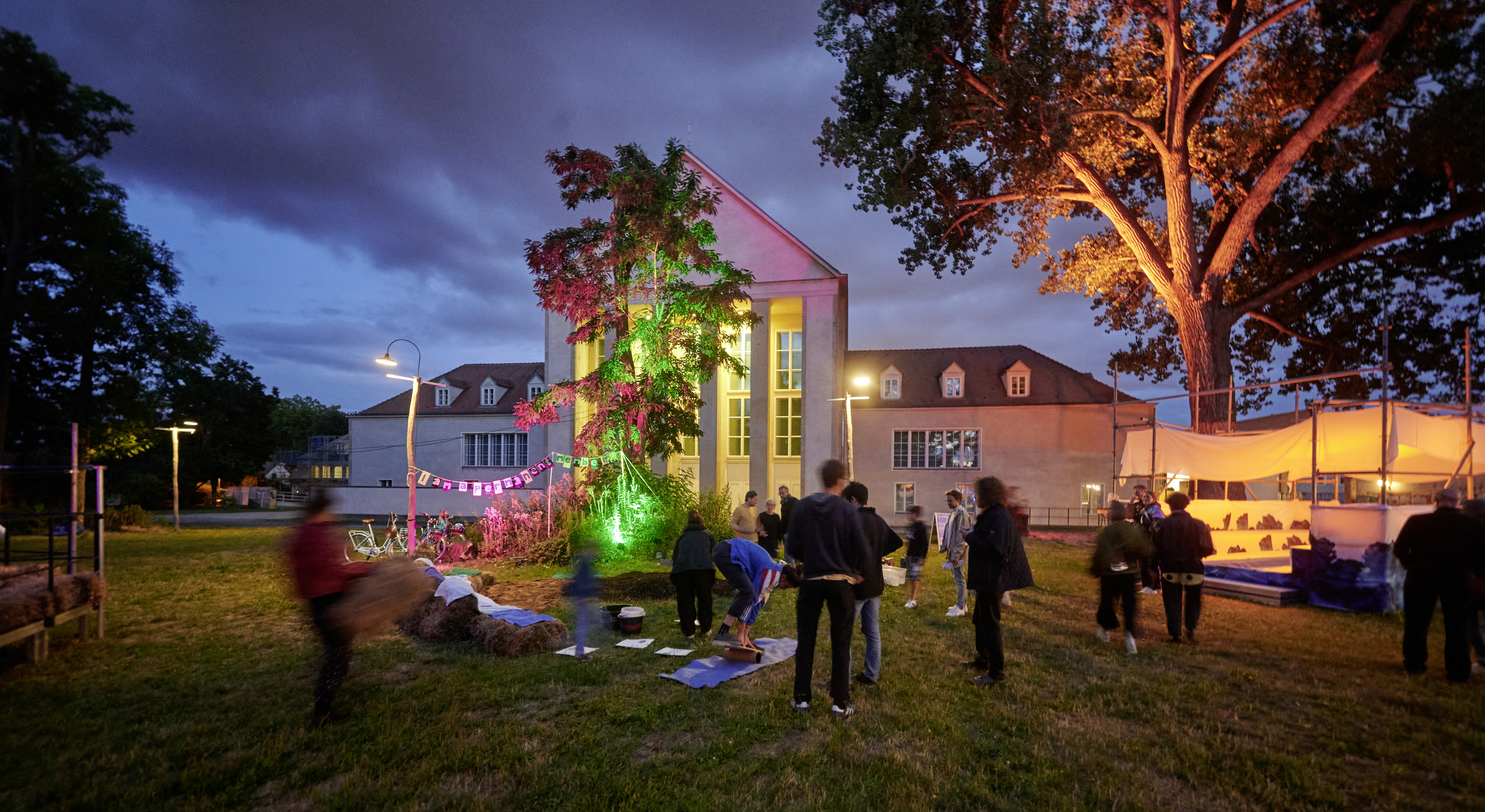+++ Canceled +++
„...es wird schon alles wieder gut...“, Katja Erfurth, Sabine Köhler und Heiki Ikkola (DE)
“Just don’t worry, everything’s gonna be fine. I am very much looking forward to your coming”, Elfriede Lohse-Wächtler wrote a last card from the Arnsdorf sanatorium to her mother in March 1940.
But nothing was supposed to get better – after the incapacitation and forced sterilization five years earlier, the killing within the National Socialist euthanasia program T4 in Pirna-Sonnenstein followed in July 1940. The fateful biography of Elfriede Lohse-Wächtler, marked by impetuous departures and personal and social entanglements, is the focus of a theater production that combines the arts of dance, mask and object theater, music and noise collages.
The clash of forces and frictions, the fight against narrowness and circumcision, the creative potential of psychologically unstable people and their fears, the rebellion for freedom and self-determination as a human being and in art, as well as the dependencies on individuals and society, will be a common thread running through the examination of Elfriede Lohse-Wächtler’s life and work and can be questioned from a variety of perspectives.
Born in Dresden in 1899, Elfriede Lohse-Wächtler studied at the local School of Arts and Crafts, took courses at the Art Academy and the Wigman School and was accepted into the Dresden Secession around Conrad Felixmüller and Otto Dix. She experienced her happiest time after her marriage to the singer and painter Kurt Lohse in Wehlen, which, however, was to be short-lived due to ongoing material hardships and interpersonal quarrels. Nervous breakdowns and diagnosed schizophrenia, which led to stays in sanatoriums in Hamburg and later in Arnsdorf, brought her most intensive creative periods and artistic recognition. Due to the combination of tension-filled personal and socio-political circumstances of National Socialism, she could not escape incapacitation, forced sterilization and gassing.
“A touching work. (…) The fact that such a scenic project has many imponderables is something of which those directly involved on stage are clearly aware. Katja Erfurth, Heiki Ikkola and Sabine Köhler, however, draw a very individual, fragmentary picture of Elfriede Lohse-Wächtler, who also called herself Nikolaus Wächtler (abbreviated from friends to “louse”), sparingly commented with traditional statements and scenic associations. In spite of large projection surfaces in the round of the stage, which is hung with light-coloured nettle fabric, they deliberately do without exposed examples of art; the sensitive self-portraits, images of people of various kinds or views of cities and landscapes are almost “left out”. And yet they are still associated, for example in “objects” such as the bust that is wonderfully integrated into the play. (…) All of this happens in the interaction of the actors with their very own linguistic and moving means, with masks and puppetry so concentrated and intense that one sometimes feels as if one is right in the middle of the scene. (DNN)
Katja Erfurth, dancer and choreographer
1981-90 dance training at the Palucca Schule Dresden, 1990-97 engagement in the ballet ensemble of the Saxon State Opera Dresden Since 1997 freelance work, including numerous solo dance evenings, choreographies for productions in musical and spoken theatre as well as for school dance projects. Teaching position at the Dresden University of Music in the fields of movement, dance and improvisation. She was nominated for the Saxon Dance Award 2015 with the dance evening “Dances in BLACK and White” dedicated to Dore Hoyer.
In 2013 and 2017 she was a scholarship holder of the Cultural Foundation of the Free State of Saxony, where she was engaged in research on the life and work of Dore Hoyer and Mary Wigman.
She is also active in various expert and cultural advisory boards and juries.
As chairwoman of the board of the Villa Wigman für TANZ e.V. association, she is significantly involved in the future use of the former Wigman School as a production house for dance.
Heiki Ikkola, puppeteer and director
1990-94 studies of acting and puppetry at the HFS “Ernst Busch Afterwards freelance work as puppeteer, director, actor and author. 2001-2005 artistic director of the puppet theatre at the TJG. 2005-2013 Co-Director of the Festival Internationaler Schaubuden Sommer. Permanent guest lecturer at the HFS “Ernst Busch”.
Since 2006 with Sabine Köhler director of the independent theatre company – Cie. Freaks and Strangers.
So far 81 theatre productions as actor, director or scenographer.
He has received several prizes for his theatre work, including, together with Sabine Köhler, the Art Prize of the City of Dresden for the work of Cie. Freaks und Fremde 2015.
Guest performances and festivals, among others in Germany, Scotland, Austria, Switzerland, Czech Republic, Poland, Colombia, Russia, Belgium, Pakistan, Liechtenstein, France, India, Iran, Colombia.
Further active in expert advisory boards and as curator of various festivals.
Sabine Köhler, puppeteer and figure maker
2003-2007 studies of puppetry at the HFS “Ernst Busch” Berlin Since then freelance work as a puppet and object artist and in the field of equipment and puppet making. Since 2006 in team with Heiki Ikkola as a freelance theatre company – Cie. Freaks and Strangers.
Further projects with Katja Erfurth (dance), Paradata (mime group; Tehran), Yvonne Brückner (animation film/ceramics), Martina Couturier (acting) and Yvonne Dick (art therapy/JVA Dresden).
Equipment/puppet making/costumes for various independent productions, including Thalia Theater Halle, TJG Dresden, Puppentheater Chemnitz and Landesbühnen Sachsen.
Together with Heiki Ikkola she received the art award of the city of Dresden for the work of Cie. Freaks und Fremde 2015. Guest performances of the productions have been shown in Germany, Scotland, Austria, Switzerland, Czech Republic, Poland, Columbia, Russia, Belgium, Pakistan, Liechtenstein, among others.
Karsten Gundermann, composer
Studied composition in Dresden, classical Chinese theatre in Beijing and music for film and theatre at New York University. Since completing his studies he has worked as a freelance composer in Hamburg. His Beijing opera Die Nachtigall, premiered in 1993, wrote opera history and became one of the most successful productions of its time.
In symphonies (Spree Symphony 2007, Abendland 2010, Wachstum&Gewalt 2016, DRESDEN 2019) and original instrumental concerts (Didgeridgoo Concert 2003, Hardanger Fiddle Concert 2004, Jew’s Harp Concert 2008, Bansurik Concert2014) the experiences gained in cultural exchange projects find musical expression.
Gundermann also works for various choreographers. The Dresden dancer Katja Erfurth created choreographies for Gundermann’s opera FAUST II 2007, the theatre music GLAUBE LIEBE
HOPE 2008 and the chamber opera KAFKAS PROCESS 2009.


